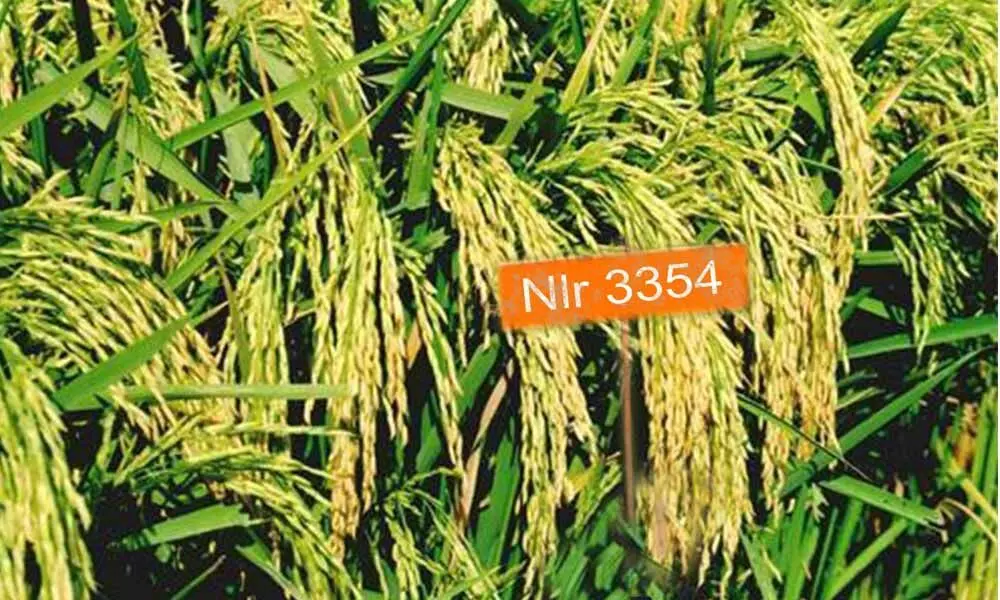Excess rains hit paddy farmers badly in Nellore

NLR-3354 paddy crop harvested in Nellore
- Taking advantage of huge moisture content in the grain, the millers’ resort to exploitation of hapless farmers and offering low prices disregarding MSP
Nellore: The adverse weather conditions badly affected the paddy farmers, who cultivated NLR-3354, a new paddy variety, in the huge extent of lands in the district and incurred heavy losses.
Taking advantage of moisture content in the grain, the millers' syndicate has offered lowest ever prices to the stocks making the farmers highly distressed.
In fact, the NLR-3354 variety has been proved a high-yielding, short duration and sustains to pests efficiently like the popular Samba Mahsuri (BPT 5204). Farmers showed interest in this crop and cultivated in a huge extent of land for the last three years and this year only it created troubles to them due to the excess rainfall. Normally, farmers cultivate paddy in around 30,000-35,000 hectares in the entire district and this year it increased up to 1 lakh hectares owing to an overwhelming response from the farmers. The reason was simple that Samba Mahsuri is resistant to bacterial blight disease and gives 15-30 per cent more yield than any other bacterial blight susceptible variety with good yielding of 4.75 to 5.0 tonnes/per hectare. The duration of the Samba Mahsuri crop is around 135-140 days and the NLR-3354 variety is having less duration of only around 125 days which attracted the farmers.
Agriculture scientists have provided only very less quantity of 1,000 kg of seed to farmers and they collected from here and there, and finally cultivated in around 2.5 lakh acres this year.
Normally, this variety requires a minimum volume of water and 2 bags of fertilizer per acre.
"We have been asking them for judicious use of fertilizer and this year there have been huge rains in the district which worsened the situation leading to lodging and moisture content. Some farmers used more than 4-5 bags of fertilizer per acre and harvested observing rains in the district which finally landed them in the trouble," said an agricultural scientist.
Excess use of fertilizer resulted in the fast growth of the crop. Heavy rains and fertilizer made the crop available on time and the rainy season forced them to harvest much before and to store the stocks under plastic sheets on the ground. In case, agriculture scientists say, wet grain stored on the ground covering plastic sheets, temperature develops inside the sheet and the high moisture content forces the grain discolored and broken. "Farmers need to dry the paddy stocks in an open area spreading them evenly giving no scope for heat generation. There are standard parameters of calculating moisture content and the millers have to offer prices accordingly.
The seeds should be dried well. Millers have to offer prices based on the moisture content and the relevant prices fixed by the government. But, pathetically, they exploited the situation and demanding around 200-250 kg of extra paddy from farmers even at the highly reduced prices which should be viewed seriously," said a retired agriculture officer. He suggested criminal cases against such acts as the millers have enjoyed normal prices in the market. The central team has visited the affected areas and the farmers explained the adverse weather conditions that led to advance harvesting and huge moisture content in the grain.











